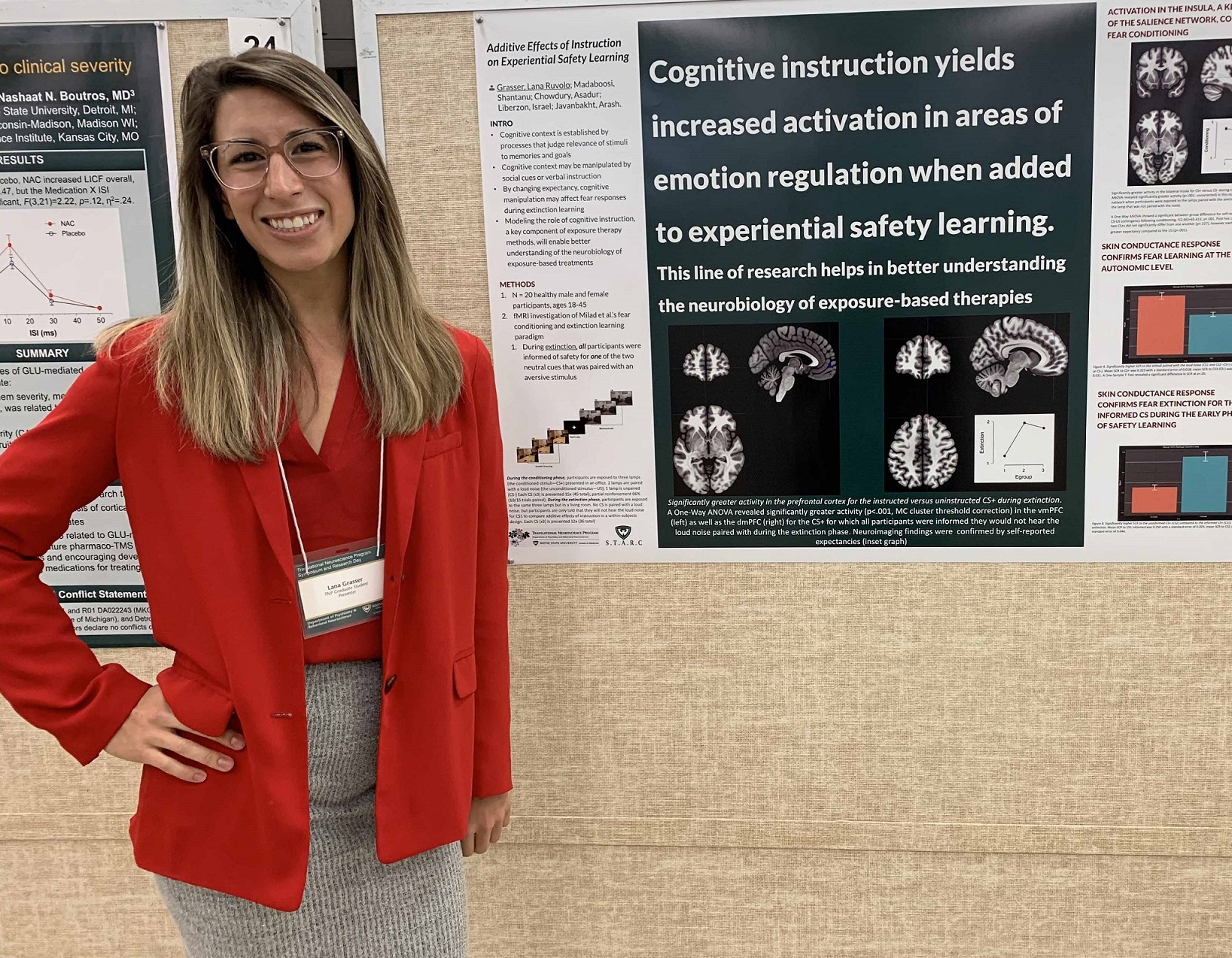The National Institute of Mental Health has awarded Wayne State University School of Medicine Translational Neuroscience graduate student Lana Ruvolo Grasser the F31 Ruth L. Kirschstein National Research Service Award for Individual Predoctoral Fellows to study biomarkers of risk and resilience to trauma in Syrian refugee children 10 to 17 years old.

An F31 is an independent fellowship for a doctoral student that supports the trainee’s stipend and benefits, and provides 60% of tuition.
Grasser also is one of three recipients of the Department of Psychiatry and Behavioral Neurosciences’ New Investigator grants.
Both grants will support her clinical study evaluating the impact of civilian war trauma exposure on psychopathology, inflammation and autonomic function in youth. The findings could reveal potential biomarkers of potential adverse psychological and physiological outcomes, an avenue that will help prioritize proper interventions for conditions like Post-Traumatic Stress Disorder.
“This project excites me for so many reasons,” Grasser said. “We are filling multiple research gaps with this study, being able to look at trauma and its affects in youth longitudinally, looking at the intersection between two trauma-related disorders — PTSD and anxiety — and of course doing this research in a unique ethnic cohort that had not been previously assessed. It is important to understand, especially in biomarkers research, that there isn’t a one-size-fits-all result. This begs for diverse populations in research, which a lot of the time we don’t see.”
Grasser is a graduate research assistant for the Stress, Trauma and Anxiety Research Clinic founded by Arash Javanbakht, M.D., associate professor of Psychiatry and Behavioral Neurosciences.
“I always say Lana is a research coordinator, a graduate student, a post-doc and a faculty at the same time because of so many research activities she is involved in. The level of enthusiasm, passion, absorptive learning and commitment that she has shown to research is exceptional,” Dr. Javanbakht said. “The goal of Ms. Grasser’s training during her predoctoral period is to gain knowledge and applied research skills in preparation for a career as an independent mental health researcher with a primary focus on the role of childhood trauma exposure on neurobiological mechanisms during critical developmental periods. Under the mentorship of (Professor of Psychiatry and Behavioral Neurosciences) Tanja Jovanovic, Ph.D., and myself, she is obtaining hands-on experience with clinical assessment, inflammatory markers, startle phenotype and genetic data to fully prepare her for a career in cutting-edge translational neuroscience approaches.”
As a third-year graduate student, Grasser has received numerous awards, given talks at international meetings and has a first-author paper published in the Journal of the American Academy of Child and Adolescent Psychiatry, as well as a first-author review paper and multiple other manuscripts published or under review, Dr. Javanbakht added. This past year she was one of the youngest recipients of the highly competitive Career Development Leadership Program and travel award from the Anxiety and Depression Association of America.
Grasser is also dedicated to exploring non-pharmacological methods, including dance and movement therapy, in the treatment of stress and trauma. In 2017, she designed and implemented a funded intervention study of art, dance and movement therapy for refugee children, and mindful yoga for their mothers. Recently, she completed a four-week summer program with English language learners in Utica Community Schools. In October, the group will start an art therapy program for refugees at a middle school and a dance and movement therapy program for refugees at an elementary school in the same school district.
Grasser’s application, her first for the grant, ranked in the top 5%, “something exceptional and rare,” Dr. Javanbakht said.
“I feel really grateful to the NIMH for recognizing me as a worthy candidate, and for acknowledging this as an important project that should be funded. I am extremely thrilled to have achieved this goal that I have had since entering graduate school, and it inspires me to keep working harder. Of course, I couldn’t have done it without my amazing committee and all of the TNPeople, as we fondly refer to one another,” she said.
Grasser received her bachelor’s degree in Neuroscience from Michigan State University, with a minor in dance. She is a native of Sylvan Lake, Mich.